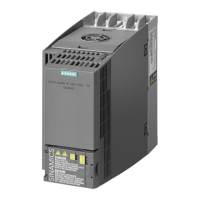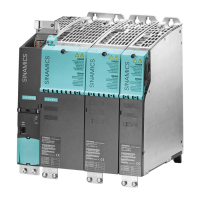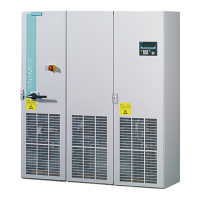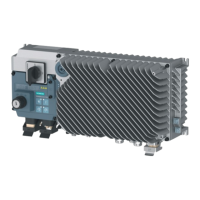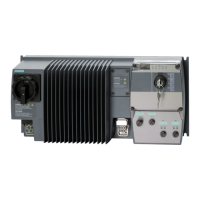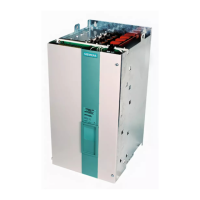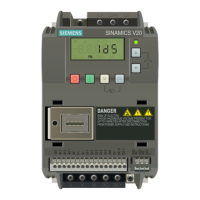Function modules
8.14 Advanced Position Control (including Active Vibration Suppression)
Drive functions
Function Manual, 11/2017, 6SL3097-4AB00-0BP5
593
● Using APC, it is possible to improve the response of a position control superimposed on a
speed control. Frequently, a higher position control gain can be set by dampening the
critical oscillation in the speed control loop. This especially applies, if the position control
uses a direct measuring system for control.
● If, as a result of periodic process forces (e.g. heavy roughing of steel), the process is
excited or instability occurs (regenerative chatter), then APC can dampen this natural
oscillation. The process is no longer unstable as a result of this damping. Higher machine
feedrates are possible - or thicker workpieces can be machined.
● Oscillations of the mechanical structure are excited in the process by the setpoint motion
of the axes. These oscillations negatively impact the process (e.g. when finishing
surfaces in mold making). The process must be made slower to avoid these oscillations
occurring. APC dampens the oscillation and avoids these disadvantages. The process
can be accelerated (higher yield rates).
grated in APC represent their own control loop - or provide the possibility
of intervening in the speed control loop. As a consequence, parameterizing the APC is
critical from a stability standpoint.
To optimize APC in conjunction with a direct measuring s
ystem requires a deep
understanding of control technology (e.g. interpretation of frequency responses).
Examples are shown in the following descriptions of the various functions, which influence
the closed
-loop control function. A description is given as to which measuring functions are
available for measuring the control loops (also see Chapter "
Measuring frequency responses
622)").
unction should be set before optimizing the speed control.
Note
Dampening the oscillation is achieved by moving the motor to oppose the oscillation. When
correctly parameterized, oscillation is dampened and the amplitude on the load side of the
mechan
ical system reduced. However, the motor itself moves more. This means that the
mechanical transmission elements between the motor and load (e.g. gearboxes) are subject
to an alternating variable and a high initial amplitude.
Note
The activation of this
function module leads to a significant increase in the required
computing time per drive axis.
The operation of 6 servo axes on one Control Unit can no longer be guaranteed in all
constellations and should be reduced to 5 axes.

